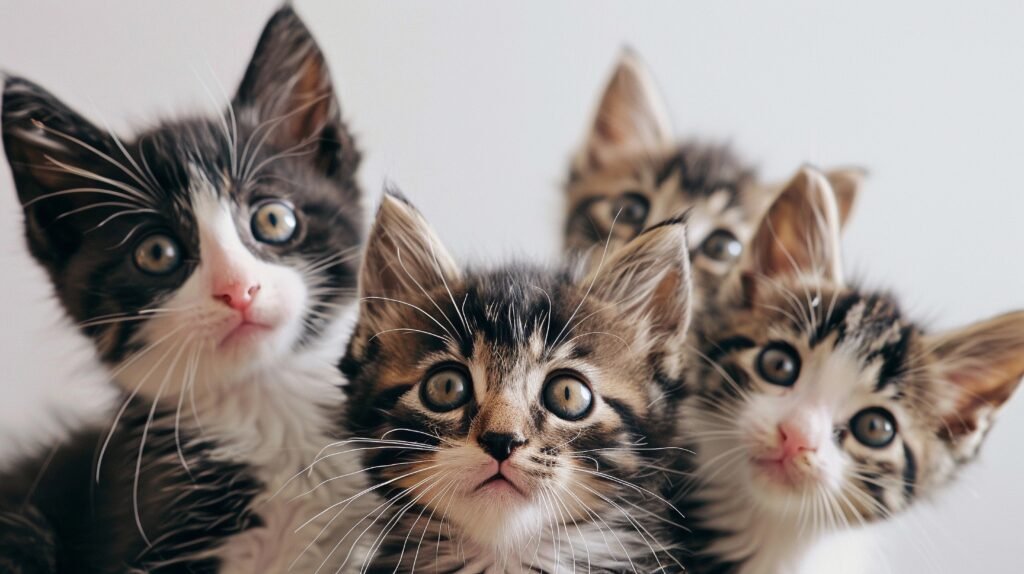
Cats are wonderful companions with unique personalities and affectionate natures, making them cherished members of many households. But one question cat owners often ask is, “How long do cats live?” The lifespan of a cat depends on various factors, including genetics, environment, diet, and overall healthcare. In this guide, we’ll explore the factors influencing a cat’s life expectancy, typical lifespan ranges for different breeds, and tips to help your feline friend live a long, healthy life.
1. Average Lifespan of Cats
On average, cats live between 12 and 15 years, with many living in their early twenties. While this might seem like a wide range, several factors influence longevity. Indoor cats enjoy longer lifespans than outdoor cats due to reduced exposure to dangers like traffic, predators, and disease. With proper care, indoor cats can live up to 15-20 years, while outdoor cats may average between 5 and 10 years.
According to The American Animal Hospital Association (AAHA), preventive healthcare, spaying or neutering, and a balanced diet can significantly extend your cat’s lifespan.
Lifespan by Cat Breeds
Cat lifespan can vary depending on the breed. Some breeds are known for their long lifespans, while others might face specific genetic health challenges. Here are a few examples:
- Siamese and Burmese: Known for their longevity, these breeds can often reach 20 years or more with good care.
- Maine Coon: This large and affectionate breed typically lives around 10-15 years.
- Persian and Himalayan: These breeds have a lifespan of around 12-15 years, though they may face health issues due to their unique body structure.
Mixed-breed cats, commonly called “domestic shorthairs” or “domestic longhairs,” often have fewer genetic health issues and may live longer than purebred cats.
Factors Affecting a Cat’s Lifespan
Several factors influence how long a cat lives. Here are some essential considerations:
- Diet and Nutrition: A high-quality, balanced diet is fundamental to your cat’s health. Cats need specific nutrients like taurine, an amino acid essential for heart and eye health. Discussing dietary options with a vet can help you choose food that will meet your cat’s unique needs.
- Healthcare: Routine check-ups, vaccinations, and parasite control are critical to your cat’s longevity. Regular vet visits allow for the early detection of health issues, which is vital for treatment and long-term health.
- Environment: Indoor cats live longer than outdoor cats due to fewer risks. If you have an outdoor cat, consider ways to make the environment safer, such as using a secure outdoor enclosure.
- Activity and Enrichment: Keeping your cat mentally and physically active can help prevent obesity and mental decline. Try providing toys, climbing structures, and interactive playtime.
Signs of Aging in Cats
As cats age, they may experience specific health and behavioral changes, much like humans. Here are a few common signs of aging:
- Joint and Mobility Issues: Arthritis is common in older cats, which may lead to less mobility or reluctance to jump.
- Changes in Appetite and Weight: Older cats may experience weight loss or gain. Changes in appetite can indicate underlying health issues, so be vigilant and consult your vet if you notice significant changes.
- Dental Problems: Dental health issues, such as gum disease or tooth decay, become more common as cats age and can affect their eating habits.
Tips for Extending Your Cat’s Lifespan
To help your cat live a long, happy life, here are some actionable tips:
- Schedule Regular Vet Visits: Annual or semi-annual check-ups can help detect and treat health problems early.
- Spay or Neuter: Spaying or neutering can prevent certain cancers and reduce the risk of your cat wandering outdoors.
- Provide Mental Stimulation: Keeping your cat engaged mentally can ward off cognitive decline. Interactive toys, puzzle feeders, and playtime are great ways to stimulate your cat’s brain.
By focusing on these elements, you can help ensure your cat enjoys a healthy and fulfilling life.
Wrapping Up: The Joy of a Long, Happy Cat Life
Caring for a cat involves commitment, patience, and affection. With the proper care, many cats live well into their teens and twenties. If you want to dive deeper into feline care and lifespan, check out this comprehensive guide on cat lifespan by ASPCA for more expert information.

Leave a Reply